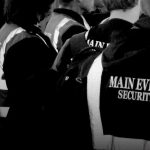On 1st April, new amendments will come into force concerning the SIA licence. This means that all those taking the new SIA course will now also complete the new components of their licence.
Why are the changes happening and what are they?
The changes provide a stronger skill set for those entering the profession. The elements included are:
- Health and safety procedures
- Communication skills
- Incident management
- Citizens Arrest
- Protecting the vulnerable
- Emergency procedures
- Record Keeping
- COVID-19
These changes are intended to ensure the safety of professionals working in the private security sector. As well as the general public.
You can book additional training from 1 April to ensure that you have the same level of qualification as those entering the profession.
I already have an SIA licence. Do I need to update it?
The answer to this is yes and no. If you already have your licence, it is still perfectly legal for you to work without the new complementary and first aid element. So, no, you don’t need to act right away.
However, it is beneficial because the additional training will increase your confidence and ability to handle situations.
Don’t be neglected by employers
However, you don’t want this experience to be neglected. Companies wishing to comply can start to favour beginners with the new licence over you and your experience.
Pubs and clubs that might have their fair share of alcohol-related incidents can look for door staff with the new licence. This is especially true as casual staff, such as bar staff, usually do not have first aid training.
Department stores that employ private security guards usually have a lot of trained first aid personnel inside. However, there are still incidents that occur in car parks where door staff will be quicker on the scene. Many trips, slips, falls, fingers caught in car doors and general emergencies occur in car parks. So even these employers will be looking for safety professionals with the new complementary elements, including COVID training.
Emergency first aid at work
The new Emergency First Aid at Work (EFAW) component of the SIA exam is easy to learn. The course will be covered in one day, but it is a huge life skill. Afterwards, you will be able to respond quickly and effectively at the scene of a first aid emergency such as:
- Trips, slips and falls
- Breathing difficulties
- Heart attacks
- Injuries caused by a fight
- Overdose of drugs or alcohol
- Burns and scalds
Why else should I take the EFAW course?
You never know when you might be on the scene of a first aid emergency. Household injuries are common, including burns and falls. Choking is a common first aid emergency. And first aid attacks such as heart attacks and strokes are also common among older people.
The more people who know about first aid in our communities, the better. Although no one wants to witness a first aid emergency, if it is a loved one and you can save the situation, you will be glad you learned first aid by taking your exam.
Changes will come into force from April 1st, and in order to work as a Door Supervisor or a Security Guard, you must have updated your SIA licence to include these new qualifictions




